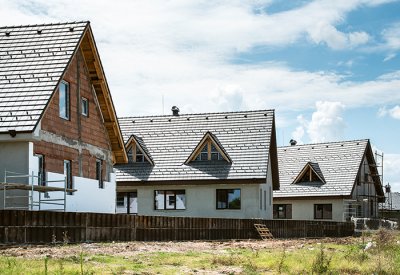The risk of a real estate bubble is highest in Frankfurt am Main, Zurich and Munich after Toronto. This is the result of a study by the major Swiss bank UBS. According to UBS, real estate prices in Frankfurt am Main have more than doubled in nominal terms. Between mid-2021 and mid-2022, however, growth in the two cities was only around 5 percent. The major Swiss bank UBS also expects the "exaggerated high sentiment on the market to end in 2023".
UBS assumes that there is a risk of a real estate bubble if the inflation-adjusted price growth rate exceeds 1.5 percentage points. According to the UBS Global Real Estate Bubble Index, in the 25 major cities surveyed, the value is currently 2.24 in Toronto, 2.21 in Frankfurt am Main, 1.81 in Zurich and 1.80 in Munich. The cities of Hong Kong (1.71), Vancouver (1.70), Amsterdam (1.62), Tel Aviv (1.59) and Tokyo (1.56) also have a bubble risk.
A real estate bubble occurs when the demand for real estate initially increases and, as a result, the prices for it also rise. At a certain point, however, the demand for real estate stops growing. Put simply, this is the case, for example, when every prospective buyer now owns a property or is unwilling to pay an exorbitant price for one. The real estate bubble then bursts: demand for real estate falls and prices also fall.
Source: ubs.com/wavepoint
© Photodune




